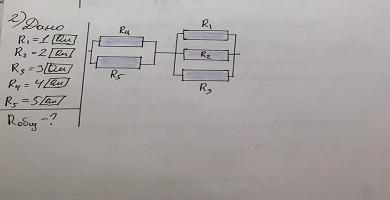Предмет: Физика,
автор: denfrog673
физика 8 класс, срочно !!!
Приложения:

Ответы
Автор ответа:
0
Ответ:
R общ=120
Объяснение:
Похожие вопросы
Предмет: Українська мова,
автор: tanya9815
Предмет: Русский язык,
автор: alina3258
Предмет: Русский язык,
автор: nuk130511
Предмет: Математика,
автор: Antonolhon